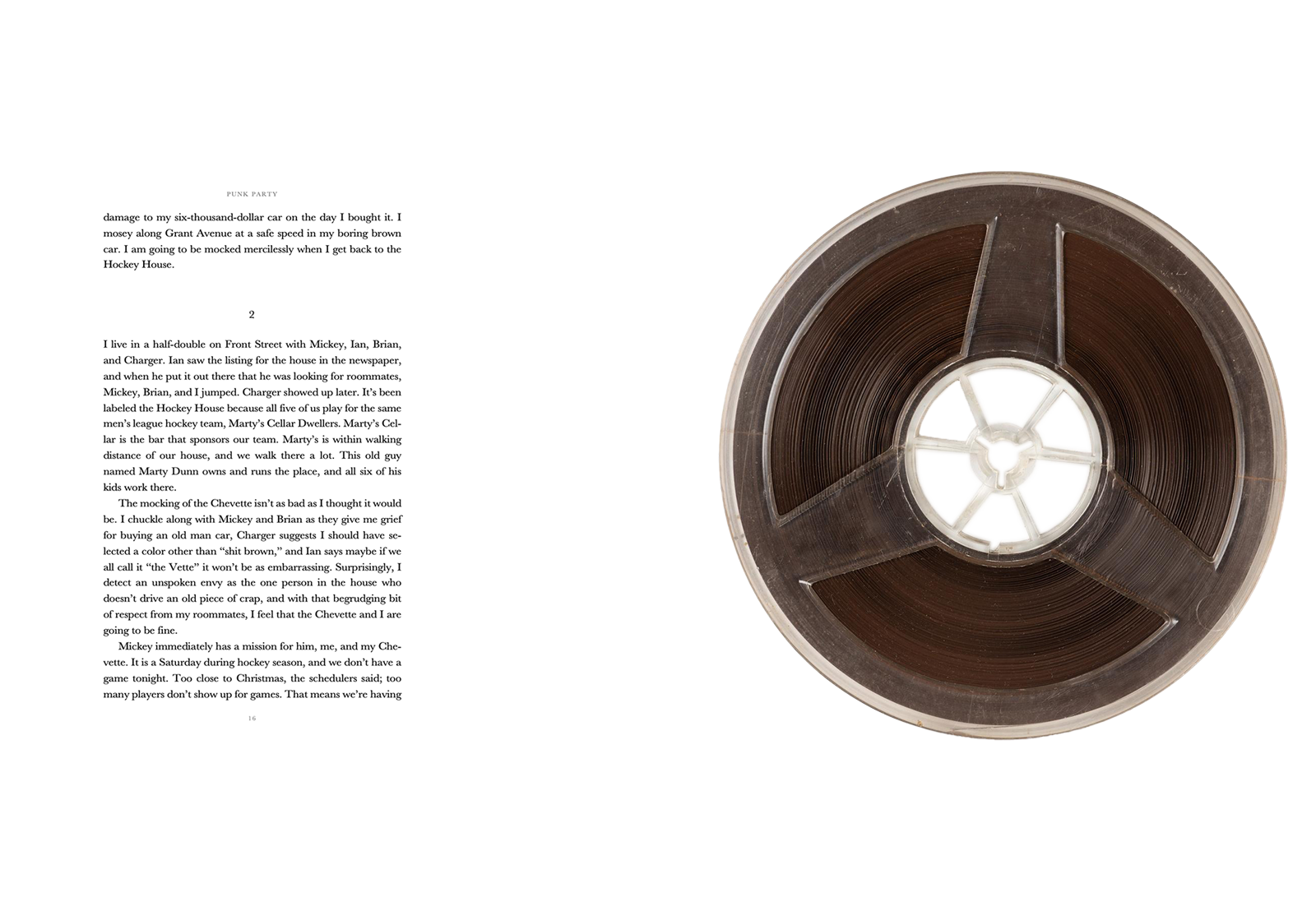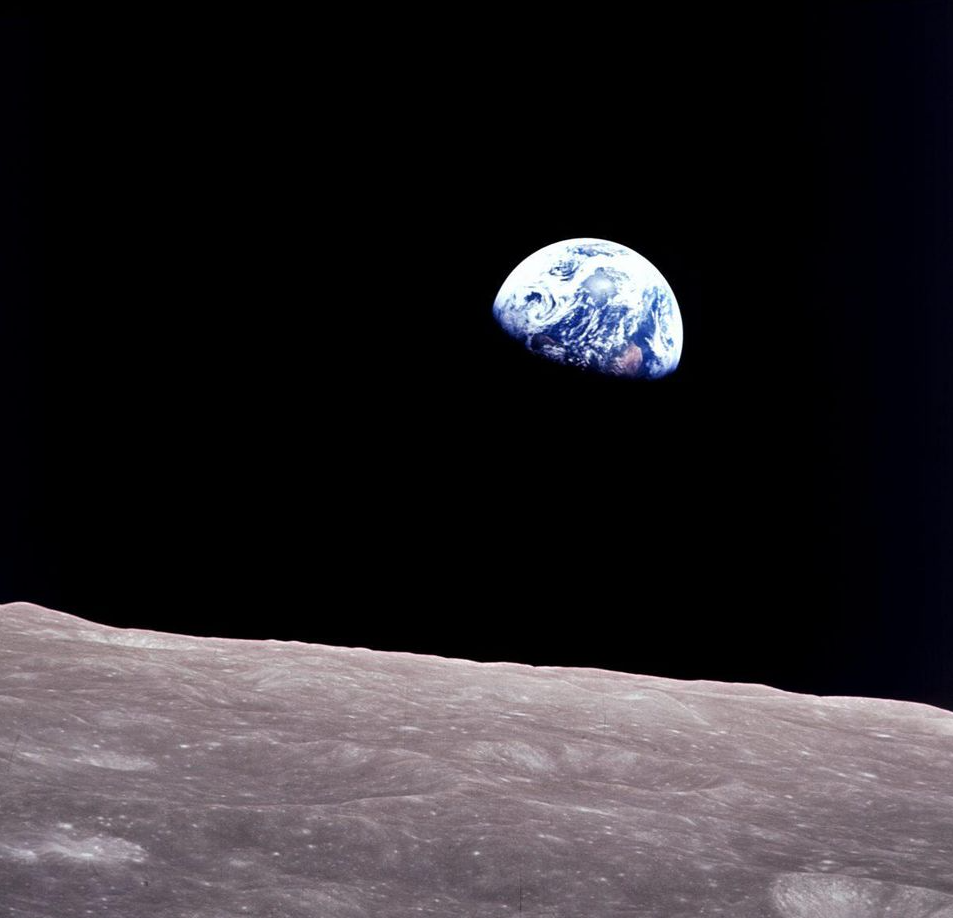It looks as though I’m continuing a theme of fiftieth anniversaries here. At first, I thought it was completely by accident. But now I believe I have discovered that 1968 was a transformative year for me.
I was eleven years old on Christmas Eve of 1968, and it was thrilling. First of all, it was Christmas, and whether there was a Santa Claus or (sigh) no Santa Claus, it didn’t matter. I loved Christmas. Still do.
Second of all, I was in sixth grade now. And unbelievably, I liked sixth grade. It was, and would remain, my favorite year of school. My teacher’s name was Mr. Rogers (yes, really) and he was very different from the Mr. Rogers on television. My Mr. Rogers was—without doubt—the coolest: plaid sportcoats matched with wild, wide ties; bellbottom pants; long, Mike Nesmith hair; posters of the Beatles and Cream and Steve McQueen in Bullit hung on the walls, intermingled with the ones of the human digestive system and the Periodic Table of the Elements. Mr. Rogers was the first male teacher I ever had, and the first teacher that spoke to us like we weren’t children, even though we were. For the first time in my life, I enjoyed going to school.
Third, I had found my muse. The Beatles. (I’ve written about them all too much already, but when an eleven-year-old finds something that they connect with on such a visceral level, it can be life-changing. Thank goodness my mom never told me to take Revolver, or Sgt. Pepper, or the White Album off the turntable. She had to be sick of hearing the same thing over and over again. Poor Mom. Abbey Road was coming in 1969, and it would play constantly.)
Then there was 2001: A Space Odyssey. I watched that film with my brothers and walked out of the theater believing I had been to outer space. I re-watch it once a year, without fail. This year I drove to New York with my brother Jonathan to see 2001 projected in 70-millimeter film in a grand old movie theater in Greenwich Village. It is with Jonathan that I share my 2001 fetish, and it is Jonathan who opened my eyes to that film’s glorious splendor and impact.
For my parents and anyone older than me, 1968 was probably a much a different beast. There was a war on. A horrible war that was killing thousands of boys. Heroes. Heroes were being assassinated here at home, too. I remember the shock on my parents’ faces when the special report interrupted TV night on April 4th. I remember tears in my mother’s eyes on June 6th. I remember riots on the news. I remember even that ruthless son-of-a-bitch Lyndon Johnson refused to run for President again. Even he had had enough.
But on Christmas Eve of 1968 I was an eleven-year-old boy, and an American space ship was circling the Moon.
For me, before the Beatles, and before movies, there were astronauts. There was Mercury. Gemini. Apollo. And here, on Christmas Eve of all times, three men were doing what no one in human history had ever done before: breaking the unbreakable confines of Earth’s orbit and circling the moon.
They weren’t landing. That would be next year’s miracle. These three astronauts and almighty NASA were rolling the dice, forgoing scheduled unmanned test flights in order to meet a bold assignment. We were going to the Moon. Now. The lander wasn’t ready, but so what? We’ll send them out there, a quarter-MILLION miles from home, and they’ll test our untested rockets as they take pictures of the Moon, a mere fifty miles below them.
And we watched it live on TV. On Christmas Eve. I remember stark black-and-white video images taken out Apollo 8’s windows … a desolate landscape pockmarked with sharply shadowed craters … a cold, dead world somehow filling me, and everyone around me, with wonder, amazement, and hope.
And then, after hours of looking at the lifeless world that had always been so far away and was now close enough to touch … the astronauts on Apollo turned the camera back toward us.
All of us … on the good Earth.
“The good Earth.” That’s how Frank Borman, the Commander of Apollo 8 signed off on the astronauts’ broadcast to us on that Christmas Eve. He and his crew, Bill Anders and Jim Lovell, had taken turns reading from the Book of Genesis in what was at the time the most watched television broadcast ever. And when they finished their reading, and it was Borman’s turn to speak again, he spoke his own words:
And from the crew of Apollo 8, we close with good night, good luck, a Merry Christmas—and God bless all of you, all of you on the good Earth.
I remember that they read from the bible, and I’m pretty sure I remember that phrase, “The good Earth,” but I can’t be sure. That’s what happens when you watch the film clips so many times. What’s the actual memory? All I know is I was on that sofa with my family on Christmas Eve, watching the world change.
As I look back, fifty years later, the juxtaposition between the biblical verse and the modest words of a test pilot and engineer who admitted he was ill-equipped to speak with any eloquence about the overwhelming situation he and his crewmates were in, is stunning to me. Frank Borman’s words are simple in their construction, heartfelt in their intention, and monumental in their implication.
The good Earth. So far away. Struggling to find a way to live together, in peace. Americans. Soviets. Vietnamese. Chinese. Black. White. Adults. Children. Eleven-year-olds. At Christmas.
The tale and the lessons of Apollo 8’s trip to the moon have been told by much better storytellers than me. There’s a link at the end of this post to a film that is truly awe-inspiring, told by the men who occupied that tiny space capsule during Christmas of 1968. If you have thirty minutes, I hope you’ll to watch it.
In the meantime, the world keeps turning. Sometimes we move forward. All too often we step backward, forgetting the lessons of yesterday, or fifty years ago, or two thousand years ago. From the beginning, to the dawn of man, all we have and all we’ll ever have is each other.
Merry Christmas to all of you. All of you here on the good Earth.

To view the film “Earthrise,” click here.

If you subscribe to my blog, every time I post a new article you’ll automatically be informed by email. Doesn’t that sound great‽ To subscribe, click here. Thanks.



Your vision of The Good Earth has given me a renewed feeling of peace. I feel joy in knowing that the strength of love gives us so much – perhaps more than we realize. Merry Christmas to all!
David, this is, as I mentioned, an area that I was astounded by – the space program and still am today. Yes, I unfortunately do get the lack of eloquence of being an engineer. We will know when technology has reached it’s peak when the only two truly human activities left will be that of fly fishermen and poet (fyi -I did not come up with that on my own).
The world back then was a simpler time (it was a “Leave to Beaver” aspiration for the middle class), it was a more complex time (the Vietnam war and civil rights struggle) and it was a time of great promise with the space program in full gear.
While we can’t go back, not yet at least, we still need the commonality of the societal promise that was wrapped together into the space program. Where is this today? We see brief flashes of this when we have the Olympics or a moving story like the cave rescue of a group of boys. We need to find this common purpose that you have described in the story of The Good Earth.
This story reminds me to look for that common, uniting purpose.
Sorry it took me so long to get to your response, Jack. So glad you liked it. I love reading your insights … and that you’re gathering those insights in the first place. Nicely done, sir.